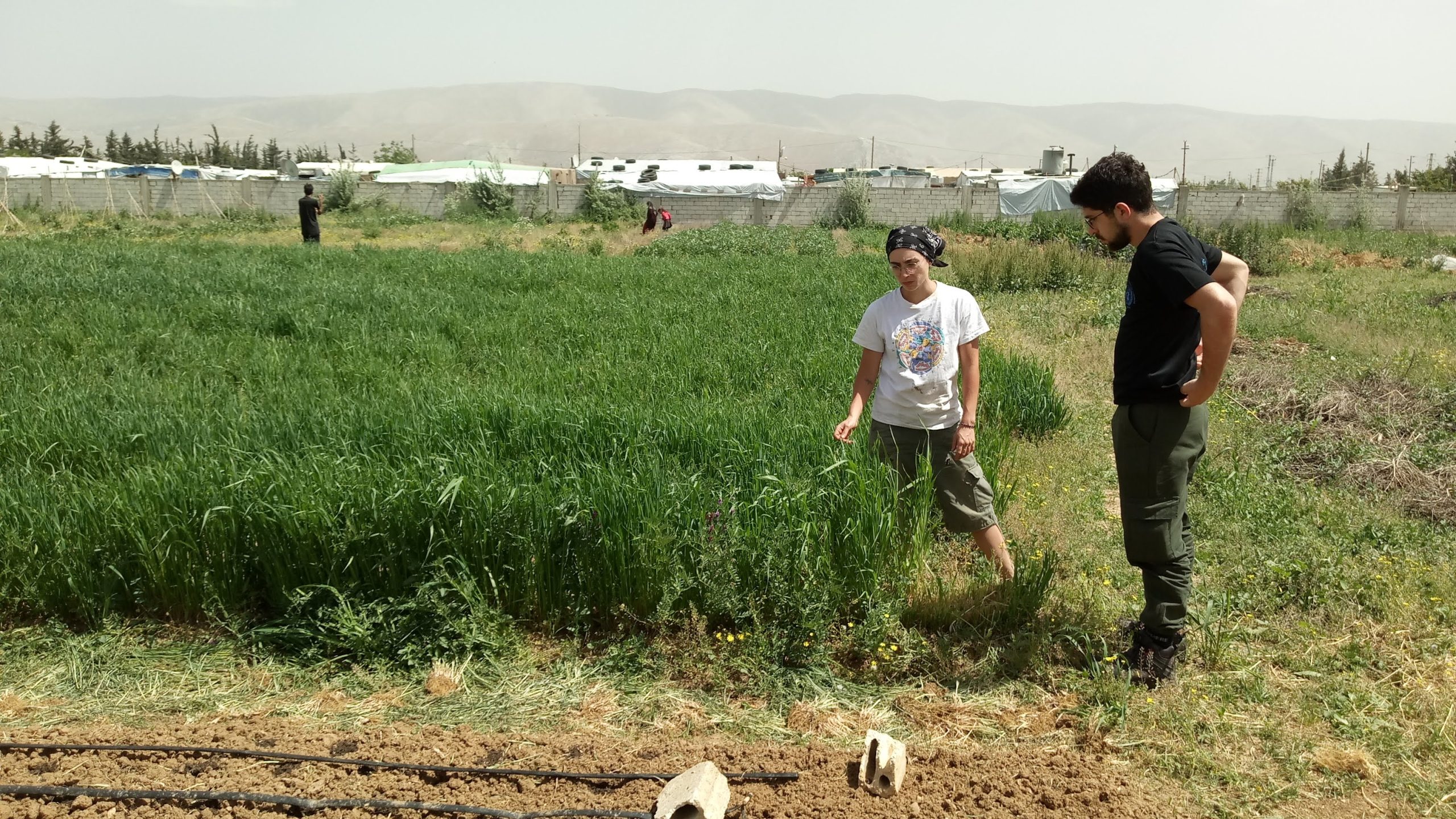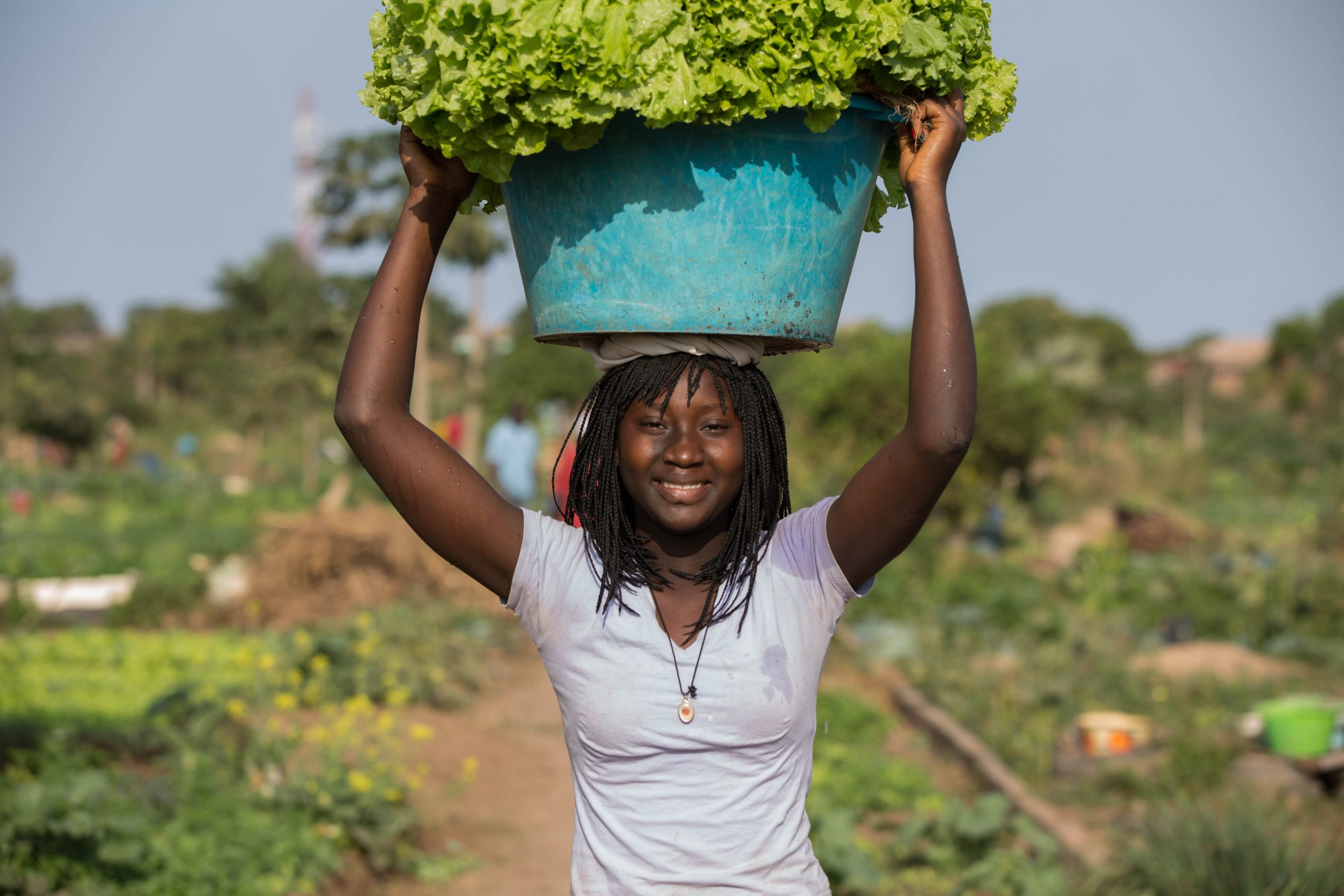Agroecology and Youth

Young farmers from Tarik Akhdar Project (Picture credits: Fair Trade Lebanon)
On the 12th of August we celebrate International Youth Day, a good occasion for us to reflect on the role of youth in transforming food systems through agroecology.
The transition towards a more sustainable food system cannot ignore the crucial role of young people. Indeed, the 13 principles and 10 elements of agroecology highlight the key role of young farmers in building food systems based on equity and fairness. Young people bring added value in farmer-to-farmer exchange, thanks to their knowledge of both traditional and innovative methods, contributing therefore to co-creation of knowledge. Moreover, agroecology encourages youth participation in food systems governance processes.
“We must remember that many young people are already involved in agriculture. In the ‘Global South’, it is the main employer of youth, making them a key force for food systems transformation. However, their work is often informal, unstable, and underpaid. Agroecology offers numerous opportunities for youth by linking stakeholders across the agrifood value chain and merging local knowledge with science and technology. And youth are best positioned for this holistic transformation that involves innovation and knowledge sharing. But for young people to be meaningfully involved in an agroecological transformation, we must provide them with resources, education, networks, and an enabling environment, engaging them both at the negotiating table and in the fields.”
GENERAL INFORMATION AND DATA ABOUT YOUTH
Today’s young generation is the largest in history, presenting challenges for employment demand and food security. About 16% of the global population consists of young people, with over 80% residing in developing nations (UNFPA, 2014). Around 80% of rural youth are engaged in food production, either formally or informally (UNCCD, 2021). However, young people frequently experience the greatest levels of food and nutritional insecurity in numerous societies. They often face low or unpaid wages, marginalization, and exploitative labor conditions. Consequently, youth today confront a precarious and uncertain future, partly due to the current food systems.
The agricultural sector provides a wide spectrum of opportunities for the employment of young people across the globe (HLPE). Engaging youth in successful agri-businesses based on agroecological principles offers a comprehensive solution that promotes the sustainability of food systems, youth employment, and socio-economic transformation.
CONSTRAINTS THAT YOUTH FACE IN AGRICULTURE
1. Exclusion from food production decisions
Although nearly 80% of rural youth are involved in agriculture, they are frequently excluded from food production decisions (UNCCD, 2021). Youth participation in advocacy and policy influence, particularly in developing nations, is still low. A study carried out by Biovision Africa Trust on the role of youth in agroecology in Africa (2023) [1] found that only 20% of the interviewed youth engaged in such activities in 2022.
2. Lack of capital and obstacles to access land compared to adults
The same study also reveals that 71% of the youth interviewed face a lack of capital to develop agroecological initiatives, with those in rural areas being the most disadvantaged. Access to credit is crucial for participation in agroecology, but high interest rates (particularly affecting urban youth), lack of collateral (especially impacting younger and rural youth), and complex credit access processes present significant challenges. In fact, only about a quarter of the youth accessed credit in 2022.
Additionally, land is a vital factor for agroecology. About 70% of the respondents lack access to land, and only about a third own land they can call their own.
[1] The assessment was carried out in fifteen countries, Burkina Faso, Central Africa Republic (CAR), Chad, Congo DRC, Egypt, Ethiopia, Kenya, Madagascar, Mali, Morocco, Mozambique, Rwanda, Tunisia and Zimbabwe were reached individual survey, key informant and focused group discussions interviews.
“Over a third of Africa’s nearly 420 million youth aged 15-35, are unemployed. Agroecology presents a transformative solution for tackling youth unemployment by promoting sustainable agricultural practices and fostering agroecological entrepreneurship. Despite constraints such as unfavorable policies, limited access to finance and markets, young entrepreneurs who have embraced agroecology have created resilient and profitable businesses along the agricultural value chain. Initiatives like those led by AFSA demonstrate the potential of agroecology to not only enhance food sufficiency and nutrition but also generate meaningful employment opportunities for youth, thereby driving inclusive economic growth among the youthful communities of Africa.”
3. Perception of agriculture as a low status livelihood
The agricultural sector is a blend of state, market, and family involvement, with limited public services. This creates a disparity between young people from farming families and those who are not. This trend coexists with a growing disaffection for agricultural work and rural life among young people, except for young migrants that see agriculture as a way to enter the labor market, often under precarious conditions (Fernández, 2023).
In Europe, the farming population is aging, with nearly 90% of EU farmers over 40 and which has seen a significant decline of 37% between 2005 and 2020 in the number of farms (Eurostat, 2022). Increased mechanization and youth detachment from agriculture and rural areas are prevalent. Seasonal work has grown, largely filled by young migrants, with over a third of the agricultural workforce in Greece, Spain, and Italy being of foreign origin (Corrado et al., 2016; Kasimis et al., 2010).
In the southern Mediterranean, high NEET (Not in Education Employment or Training) rates among youth, along with limited access to basic services, land, financial support, and decent jobs, impede their ability to engage in sustainable agriculture projects (Fernández, 2023).
4. Lack of experience, knowledge and specific trainings
According to Biovision Africa Trust, 50% of young people lack the training and knowledge needed to engage in agroecology. Additionally, a lack of market information hinders their participation, as they often lack the necessary data to make informed decisions about selling their products, particularly in urban areas.
Access to agroecological technologies is also limited by awareness. About half of the youth are aware of technologies like mobile phones for financial transactions, soil testing, drip irrigation, and post-harvest management, with most of this awareness found in urban areas among highly literate individuals.
Key sources of agroecological information include neighbors, schools, local NGOs, and social media platforms like Facebook, WhatsApp, and Instagram. The study highlights the role of neighbors and peers in training and spreading agroecological information. Especially rural youth maintain strong social networks through gatherings and community activities, facilitating information exchange.


“The youth of today are uniquely positioned to lead the charge towards a sustainable future, driven by their fresh perspectives and diverse priorities. Unlike previous generations, they prioritize environmental stewardship, social equity, and innovative approaches to solving global challenges. Embracing agroecology, they understand that sustainable agriculture is not just about food production but also about nurturing ecosystems, empowering communities, and fostering resilience against climate change. By championing agroecology, young people are paving the way for a more equitable world where humanity lives in harmony with nature.”
UPCOMING EVENTS RELATED TO YOUTH AND AGROECOLOGY
- First Thousand African Youth Summit on Food Systems and Agroecology, Addis Ababa (Ethiopia), 14-16 October 2024: the AFSA Youth Platform will bring together over a thousand youth to showcase practical economic opportunities in Agroecology. More information here.
- “The role of Youth in the Agroecological Transformation: insights from Youth Networks from all over the world”, Hybrid Side Event during the World Food Forum, Rome (Italy), 16 October 2024, 2-3 PM CET. More information here.
- The Changemakers for Agri-food Action series: A 5-part, monthly online webinar series from June 2024 to October 2024. The series delves into the Rio Convention-related actions of young leaders in the areas of advocacy, partnerships, and knowledge-sharing, aiming to inspire, educate, and mobilize other young individuals to take action. More info here.
PROJECTS RELATED TO YOUTH AND AGROECOLOGY
The ‘Global Programme for Small-scale Agroecology Producers and Sustainable Food Systems Transformation (GP-SAEP) project is part of a larger funding initiative by the European Commission and the Belgian Development Cooperation. It aims to remove obstacles to agroecology for small-scale producers. Component 3, led by YPARD, focuses on empowering 10,000 small-scale farmers in Madagascar, Uganda, Costa Rica, and Ecuador. This will include the engagement of 20 young professionals who will serve as Agroecology Fellows. More info here.

Women farmers of the project Fonds d’appui Granja de Pessube in Guinea-Bissau (Picture credits: Mitja Rietbrock/ Swissaid)
